If you're into gluten-free diets, you've probably wondered if potatoes fit the bill. Great news: they totally do! Potatoes are naturally free from gluten, which is excellent for folks who have celiac disease or are simply avoiding gluten for other reasons. But there's more to these humble tubers than meets the eye.
Let's clear up a common misconception first. Despite being classified as starchy, potatoes don't come with the gluten baggage you might find in grains like wheat, barley, or rye. So feel free to enjoy them in all their forms—mashed, baked, or roasted!
- Understanding Gluten and Potatoes
- Debunking Potato Myths
- Nutritious Value of Potatoes
- How to Cook Gluten-Free Potatoes
- Fun Gluten-Free Potato Recipes
- Tips for Buying and Storing Potatoes
Understanding Gluten and Potatoes
First off, let's break down what gluten really is. Gluten is a protein found in certain grains such as wheat, barley, and rye. It's what gives bread that chewy texture. However, not everyone can digest gluten easily; for people with celiac disease or gluten sensitivity, avoiding gluten is essential.
Now, let's talk about where potatoes fit into the mix. Potatoes are a root vegetable, not a grain. This simple fact makes them naturally gluten free. In fact, rice, corn, and potatoes are all staples in a gluten-free diet because they don't have gluten proteins at all.
What's in a Potato?
Though often lumped into the 'carbs' category, potatoes boast a fair amount of nutritional benefits. They're packed with fiber, vitamins like C and B6, and minerals such as potassium and magnesium. A medium-sized potato has about 110 calories and 2 grams of dietary fiber.
| Component | Amount per Medium Potato |
|---|---|
| Calories | 110 |
| Dietary Fiber | 2 grams |
| Potassium | 620 mg |
So, while they might not bulk up your muscles with protein power, potatoes can certainly be part of a well-rounded, healthy diet.
Why Potatoes Are Safe in a Gluten-Free Diet
Besides their pure, starch-based makeup, potatoes are versatile and pair well with almost anything. You can enjoy them as a side dish, main course, or even a snack without worrying about gluten. Just be cautious of processing methods; fried options like chips or French fries may have come into contact with gluten through shared fryers, or by being coated in wheat-based flour.
Debunking Potato Myths
Poor potatoes often get a bad rap, especially when it comes to being misunderstood. Let's set the record straight on a few common myths.
Potatoes Are Gluten-Rich
First up, the big one: are potatoes loaded with gluten? Absolutely not! Potatoes are among the most helpful heroes of a gluten free diet. They belong to the nightshade family, just like tomatoes and eggplants, none of which naturally contain gluten. So, go ahead and munch away without fear.
All Carbs Are Bad
Another myth is that if you’re watching your diet, you need to avoid potatoes because they’re pure carbs. Guess what? Potatoes are actually packed with nutrients like Vitamin C, potassium, and fiber. They do have carbs, but these are crucial for energy. It’s all about balance—not cutting them out entirely.
Prepare Your Potatoes Wisely
But, a word of caution: watch out for how they're prepared! Deep-fried or breaded potatoes at restaurants may have gluten added in their coatings or seasonings. Opt for homemade versions or simply ask about the prep method when dining out.
Ready to embrace the potato? Just remember, it's not the spud itself that's the issue—it's the extras you need to be careful with!
Nutritious Value of Potatoes
So, you want to know what makes potatoes tick nutrition-wise? First off, potatoes are more than just filler food—they pack a mean punch of nutrients. Inside these earthy, unassuming tubers lies a treasure trove of vitamins and minerals.
Vitamins and Minerals Galore
Potatoes are loaded with important stuff like vitamin C, potassium, and vitamin B6. A medium-sized potato can provide nearly 30% of your daily vitamin C needs, which is pretty awesome considering how many folks think oranges are the go-to for this vitamin. Not to mention, the potassium level here is rivaled only by bananas, which helps with muscle function and keeping your blood pressure in check.
Potatoes as a Fiber Source
Think about fiber, which many of us don't get enough of. Potatoes with the skin left on serve as a solid source of fiber, helping keep you full and potentially aiding digestion. A medium potato has about 2 grams of fiber, and while that might not sound like a lot, every little bit helps when you're trying to hit those fiber goals.
Protein and Antioxidants
Let's not forget protein. Although they won't replace your steak, potatoes provide about 2 grams of protein per serving. When paired with other protein sources, they can complement a balanced diet quite well. Then there are antioxidants like flavonoids and carotenoids, which work to protect your cells from damage.
"Potatoes are a complex carb and a great source of energy for athletes and active individuals," says Dr. Jane Q. Nutritionist, a respected voice in the field of dietary health. "When prepared properly, they’re an excellent addition to most diets."
Table of Nutrient Content per Medium Potato
| Nutrient | Amount per Medium Potato |
|---|---|
| Calories | 110 |
| Vitamin C | 30% of daily value |
| Potassium | 620 mg |
| Fiber | 2 grams |
All this goes to show, the next time you're whipping up gluten-free recipes or just looking for a nutritious snack, don't skip on potatoes. They've got the nutrients you need and can fit into many different meal plans successfully.

How to Cook Gluten-Free Potatoes
Cooking potatoes in a gluten-free way is actually pretty easy. They're super versatile, and you can whip them up in countless ways without worrying about gluten sneaking in. Let’s dive into some tasty methods.
Classic Baked Potatoes
Everyone loves a good baked potato, right? It's simple and requires minimal effort. Just wash the potato, prick it a few times with a fork, and bake it directly on the oven rack at 400°F for about an hour. Boom, you're done!
Mashed Potatoes
Mashed potatoes are gluten-free by nature, but you need to watch out for cross-contamination if you’re preparing them in a shared kitchen. Here's a quick way to make a creamy, buttery batch:
- Peeled and cut your potatoes into chunks.
- Boil in salted water until tender, about 15-20 minutes.
- Drain and mash with butter and a splash of milk. Season with salt and pepper.
Remember to use ingredients that are labeled gluten-free to avoid any hidden gluten.
Roasted Potatoes
For a quick side dish, try roasting potatoes. Simply cut them into bite-sized pieces, toss with olive oil, salt, and your favorite herbs, and roast at 425°F for 25-30 minutes until crispy.
Potato Salad
When making a potato salad, choose a mayo or dressing that’s clearly marked as gluten-free. Did you know traditional potato salad recipes are often naturally gluten-free? Just watch your toppings and mix-ins.
Frying Potatoes
If you're into fries, make sure to use a dedicated fryer or pan strictly for gluten-free cooking. Nothing worse than cross-contaminated oil ruining your plans for crispy fries!
For each method, the key is to use quality ingredients and ensure all cooking surfaces and tools are free from gluten contamination. Enjoy your potatoes in these fun and easy ways!
Fun Gluten-Free Potato Recipes
Diving into the world of potatoes can be a blast, especially when you're whipping up some mouth-watering gluten free dishes. These versatile spuds are not just for side dishes; they can steal the spotlight in any meal!
Loaded Baked Potato Skins
Who can resist a good loaded potato skin? Here's how to make it free of gluten.
- Start by baking your potatoes until soft. Allow them to cool slightly, then slice them lengthwise and scoop out some of the flesh, leaving a thin layer inside the skin.
- Brush the potato skins with olive oil, sprinkle a little salt, and bake until crispy.
- Top them with gluten-free sour cream, chopped scallions, and crispy bacon bits. Serve hot!
Classic Mashed Potatoes
Mashed potatoes are a dinner staple, and they're naturally gluten free. Here's a simple and tasty way to prepare them.
- Boil peeled and diced potatoes in salted water until tender.
- Drain the water and mash the potatoes with a generous amount of butter and a splash of cream.
- Season with salt, pepper, and a pinch of garlic powder for an extra kick.
Potato and Spinach Frittata
This frittata makes for a hearty breakfast or a light dinner.
- Thinly slice potatoes and sauté them in a non-stick skillet with some olive oil until they're golden.
- Add fresh spinach to the skillet, allowing it to wilt.
- Pour beaten eggs into the skillet, stir gently, and cook until just set.
- Finish by placing the skillet under the broiler until the top is lightly browned. Slice and serve!
Potatoes not only provide a blank canvas for flavors but also pack in nutrition, keeping your meals delicious and gluten free. These recipes are just the start; experiment with your own toppings and spices to find your perfect potato dish!
Tips for Buying and Storing Potatoes
When it comes to picking the perfect potatoes, a little know-how goes a long way. Start by choosing those that are firm and free from blemishes. Soft spots or sprouts are a big no-no, as they mean the potatoes aren't fresh. Keep an eye out for any green patches. This indicates exposure to too much light, leading to solanine, which isn't good for your health.
Buying Tips
- Varieties Matter: Consider your cooking method. Russets are ideal for baking and mashing. Red potatoes work wonders in salads, while Yukon Golds are awesome all-rounders.
- Local is Best: If possible, buy from local farmers' markets. You often get fresher produce that hasn’t traveled far.
- Quantity: Think about how many you actually need. Buying too much can lead to waste, as potatoes don't last forever.
Storing Tips
Proper storage is key to keeping your potatoes fresh and useful for all those recipes you've been eyeing.
- Avoid the Fridge: The cold turns their starch into sugar quicker, affecting the taste and texture when cooked.
- Cool and Dark: A pantry or a cupboard is your potato's best friend. The cooler and darker the place, the longer they'll last.
- Avoid Plastic Bags: Go for paper or burlap sacks instead. They let potatoes “breathe” and prevent moisture build-up.
- Separate from Onions: Storing them next to onions can cause both to spoil quicker. They emit gases that speed up spoilage.
Quick Storing Stats
| Storage Method | Approx. Shelf Life |
|---|---|
| Pantry | 3-5 Weeks |
| Refrigerator | 1-2 Weeks |
| Countertop | 1 Week |
With these tips in mind, you'll be sure to keep your gluten-free meal plans on track and your potatoes in tip-top shape.
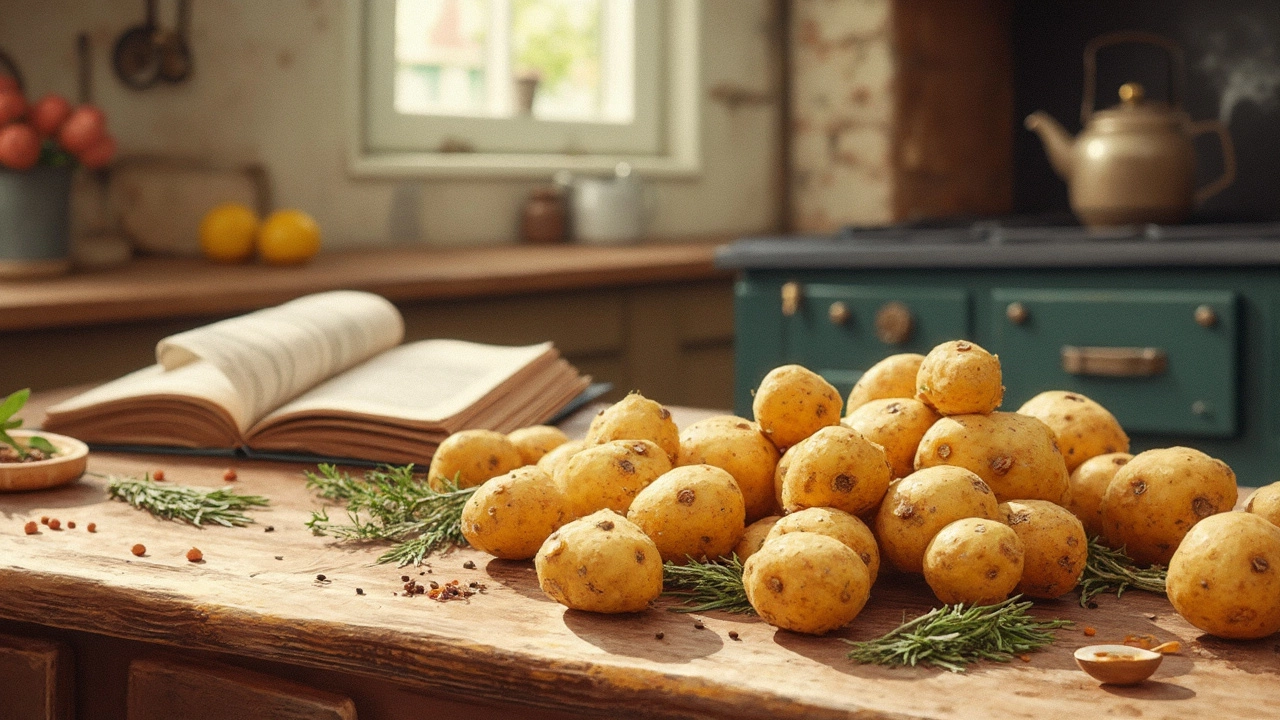

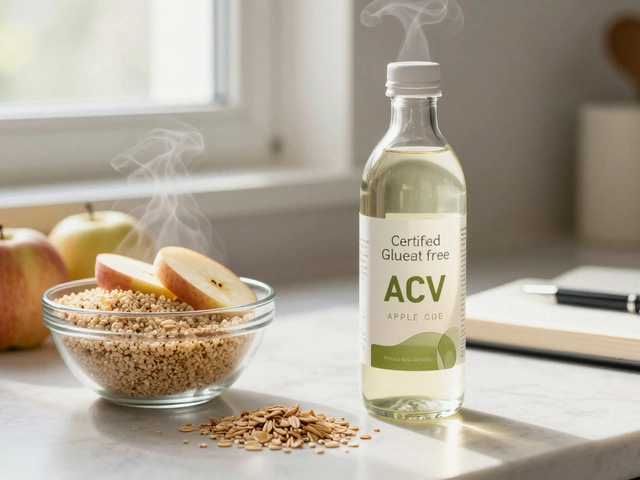
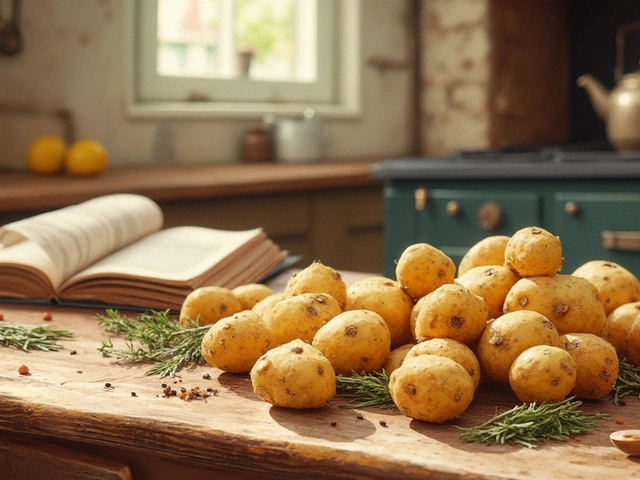
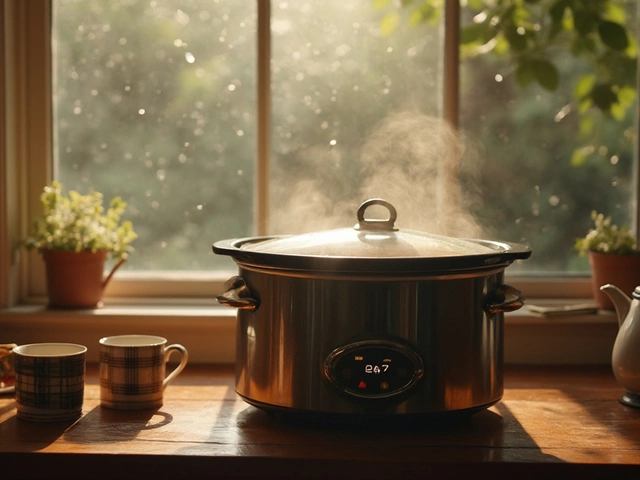

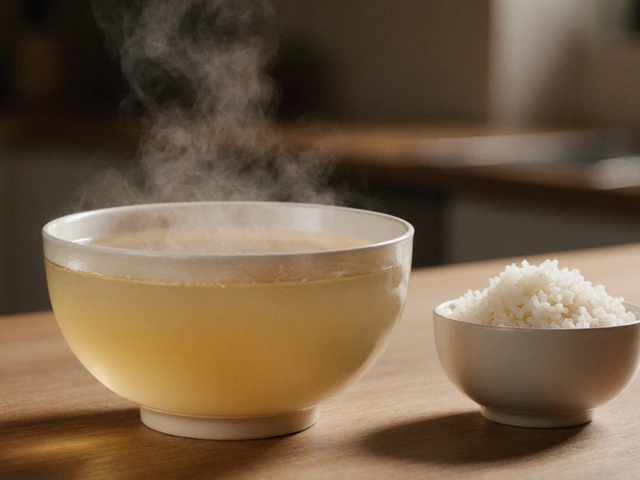
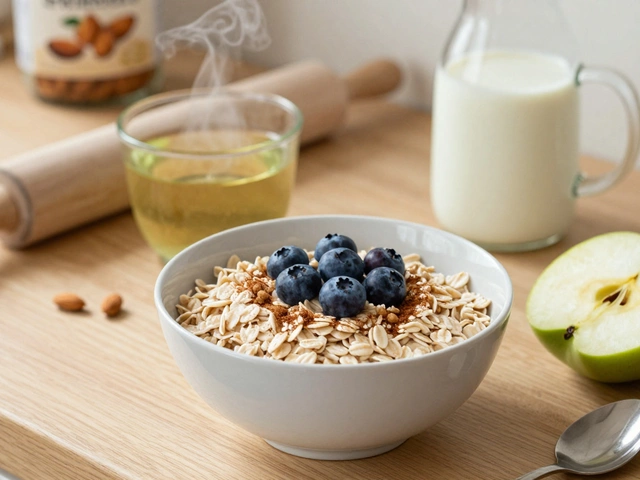
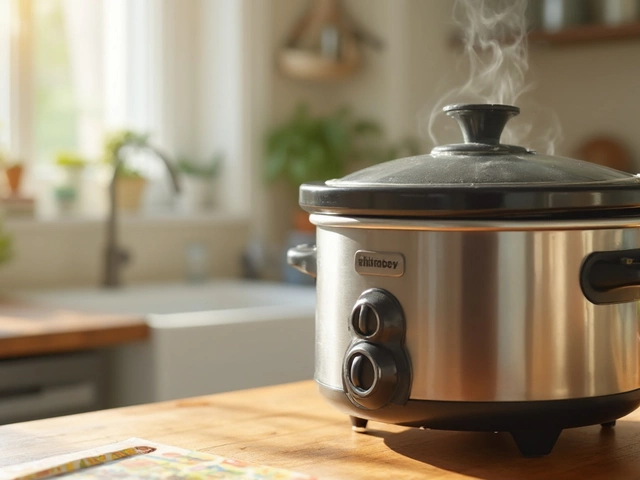
Write a comment